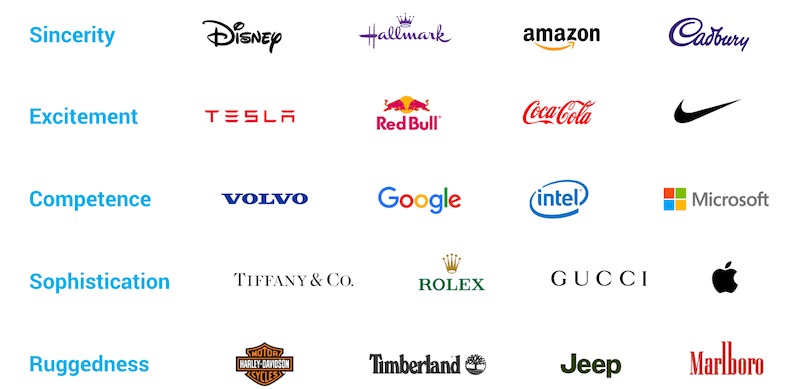What Is A Business Brand ?
A brand is an important part of your business personality for your customers
Just like those talented musicians who make their art seem effortless, creating a strong brand for your business can feel like an elusive and challenging process.
But don’t worry! In this blog post, we’ll explore the importance of having a solid brand and how it can work wonders for your business.
Then, we’ll finish up by outlining steps you can take to define and identify your own business brand – and providing you with a starting point to describing your own brand: A list of brand identifier/descriptor words.
Why a Brand Matters
A brand is much more than just a name, a logo, or a catchy slogan. It’s the overall identity, personality, and essence of your business.
It’s what sets you apart from your competitors, creates a lasting impression in the minds of your customers, and ultimately, influences their decision to choose you over other options.
Having a strong brand is crucial because it:
Builds recognition and loyalty: When customers know what to expect from your business, they’re more likely to trust and stick with you.
Simplifies decision-making: A well-defined brand makes it easier for customers to choose your products or services over others.
Creates a sense of value: A strong brand often translates to perceived quality, which can justify premium pricing.
Supports marketing efforts: Having a clear brand message and identity can make your marketing more effective and cohesive.

Steps to Define and Identify Your Business Brand
Now that we understand the importance of branding, let’s move on to the listicle outlining the steps you can take to define and identify your own business brand.
1. Know Your Target Audience
Before you can create a brand that resonates with people, you need to know who you’re trying to reach. Identify your ideal customer by considering factors like age, gender, location, income, and interests. The more specific you can be, the better.
2. Define Your Business’s Purpose and Values
Ask yourself why your business exists and what values it stands for.
This will form the foundation of your brand and help guide your decisions moving forward. Be genuine and authentic in your approach – customers can tell when a brand is not being true to itself.
3. Craft Your Brand’s Personality
Your brand’s personality is essentially it’s personality – it’s human traits. Is your brand playful, serious, trendy, luxurious or adventurous?
Consider the tone and style you want to convey in all aspects of your business, from your website to customer interactions.
4. Create a Memorable Visual Identity
A strong visual identity includes elements like your logo, colors, and typography. These should be consistent across all platforms, from your website to your social media profiles.
Aim for a design that’s eye-catching, memorable, and reflective of your brand’s personality.
5. Develop Your Brand Messaging
Your brand messaging is the story you tell about your business – it’s what connects you to your customers. Craft a compelling narrative that speaks to your target audience’s needs and highlights your business’s unique selling points.
6. Consistently Communicate Your Brand
Once you have your brand identity in place, make sure it’s consistently communicated across all channels, including your website, social media, packaging, and even customer service.
Consistency is really critical, and helps build recognition and trust among your audience. You’ll need to work with your employees and creative team to make sure they apply your brand uniformly whenever possible.
7. Monitor and Adjust
Branding is an ongoing process. Continuously monitor how your brand is perceived by your audience and be open to making adjustments as needed. Stay true to your brand’s core values, but don’t be afraid to evolve and grow with your customers.
Here’s a list of helpful brand description words to consider:
| Brand Identifier Words You Can Use To Describe Your Brand | |
|---|---|
| Innovative | Minimalist |
| Luxurious | Edgy |
| Sustainable | Sophisticated |
| Rustic | Classic |
| Quirky | Youthful |
| Elegant | Bold |
| Authentic | Eclectic |
| Modern | Nostalgic |
| Vibrant | Trustworthy |
| Approachable | Artistic |
| Whimsical | Refined |
| Daring | Friendly |
| Professional | Athletic |
| Chic | Earthy |
| Urban | Tranquil |